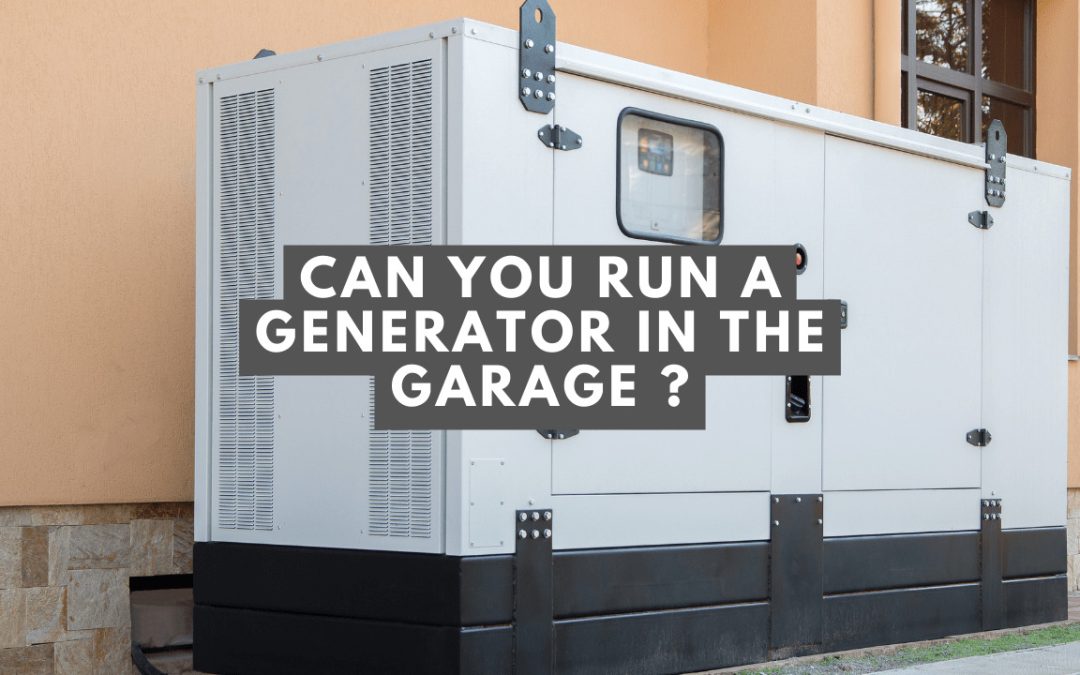Running a generator in the garage can be a convenient solution in case of a power outage or when you need to use power tools that require more electricity than the standard electrical outlet can provide. However, running a generator in the garage also poses several potential hazards that must be taken into account before deciding whether it’s safe to do so.
Here are some things to consider before running a generator in the garage:
Carbon Monoxide Poisoning
Generators produce exhaust fumes that contain carbon monoxide, which is an odorless, colorless gas that can be deadly. Carbon monoxide can quickly build up in a confined space, such as a garage, and cause carbon monoxide poisoning, which can lead to symptoms such as headaches, dizziness, nausea, and even death. Therefore, it’s critical to ensure that the garage is adequately ventilated to prevent the buildup of carbon monoxide. This means opening the garage door and any windows or doors leading to the outside.
Fire Hazard
Generators produce heat, and when operated improperly, they can quickly become a fire hazard. Make sure that the generator is placed on a flat, stable surface that is free of any flammable materials. Also, ensure that the generator is at least 10 feet away from any combustible materials, including the garage itself. And never leave the generator unattended while it’s running.
Electrical Hazards
Generators produce a significant amount of electricity, and if not used correctly, they can pose an electrical hazard. Ensure that the generator is properly grounded and that you’re using a heavy-duty. Outdoor-rated extension cord to connect the generator to the devices you’re powering. Never plug the generator directly into a wall outlet, as this can cause backfeeding. Which can be dangerous for utility workers who may be working on the power lines.
Noise Pollution
Generators can be noisy, and running one in the garage can create a significant amount of noise pollution. Not only can this be annoying to neighbors, but prolonged exposure to loud noise can also cause hearing damage. If you’re running a generator in the garage, consider using earplugs or noise-cancelling headphones to protect your hearing.
Conclusion
Running a generator in the garage can be a convenient solution for powering devices during a power outage or when you need more electricity than the standard outlet can provide. However, it’s important to keep in mind that generators produce carbon monoxide, can pose a fire hazard, and can be an electrical hazard if not used correctly. Therefore, before running a generator in the garage, ensure that the garage is adequately ventilated, that the generator is placed on a flat, stable surface that is free of any flammable materials, that you’re using a heavy-duty, outdoor-rated extension cord to connect the generator to your devices, and that you’re not plugging the generator directly into a wall outlet. Also, remember to be considerate of your neighbors and protect your hearing by using earplugs or noise-cancelling headphones. run a generator in the garage
run a generator in the garage

